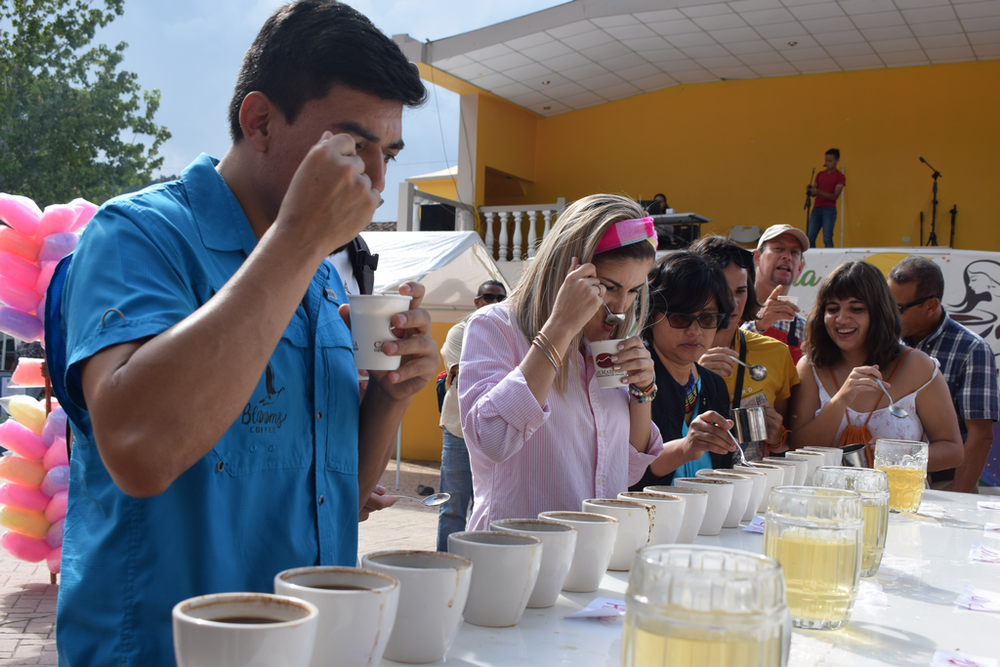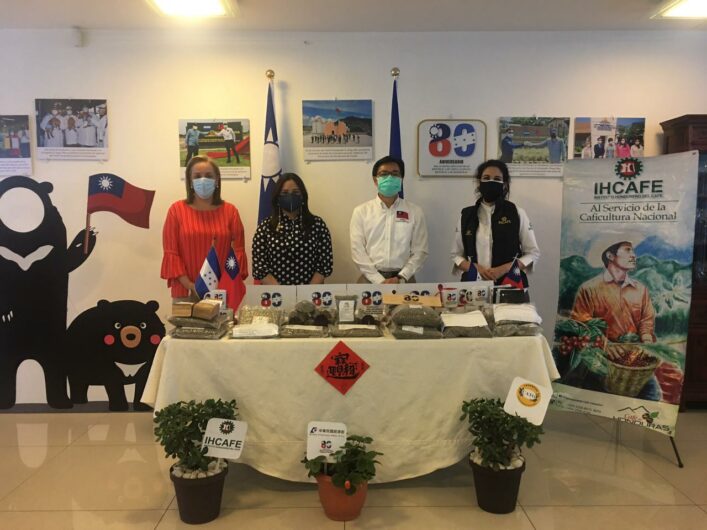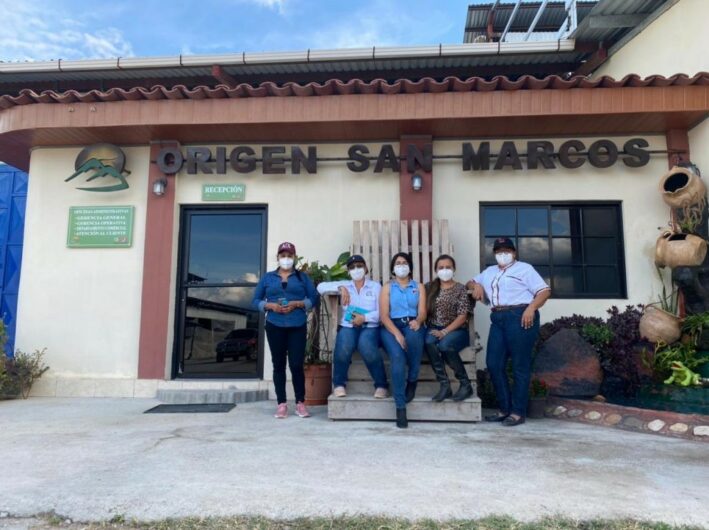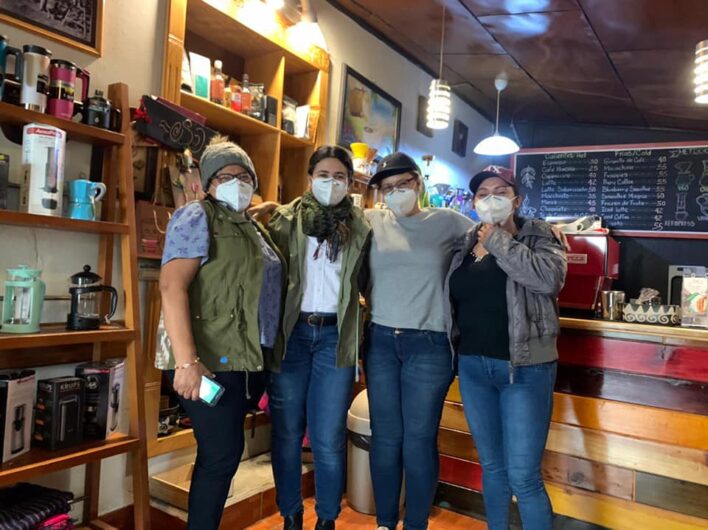
In addition to facing challenges with production, harvest and connecting with buyers, coffee producers must also find ways to undertake more sustainable means of growing and producing their harvests.
We spoke to Michela Accerenzi from Fundación ETEA to learn more about what goes into inclusive and sustainable development, as well as what can be done to promote further research and collaboration in the coffee industry.
WHAT ARE THE BEST WAYS TO PROMOTE INCLUSIVE AND SUSTAINABLE DEVELOPMENT IN HONDURAN COFFEE PRODUCTION?
I believe that inclusive and sustainable development must be producer-centered; that is, it needs to include farmers’ voice and experience in every step. Too often they are just the final recipients of projects, programs and policies.
Sustainability must include environmental, social, economic and political spheres. Gender and intersectionality must be at the core of any action to ensure that no one is left behind. For this, privilege must be questioned and challenged. Therefore, it requires a deep analysis as well as the creation of allies and accomplices’ networks to face historical power imbalances and biases. It has to be a collective effort and must change the global coffee market instead of just, or mostly, looking at the production side of the chain.
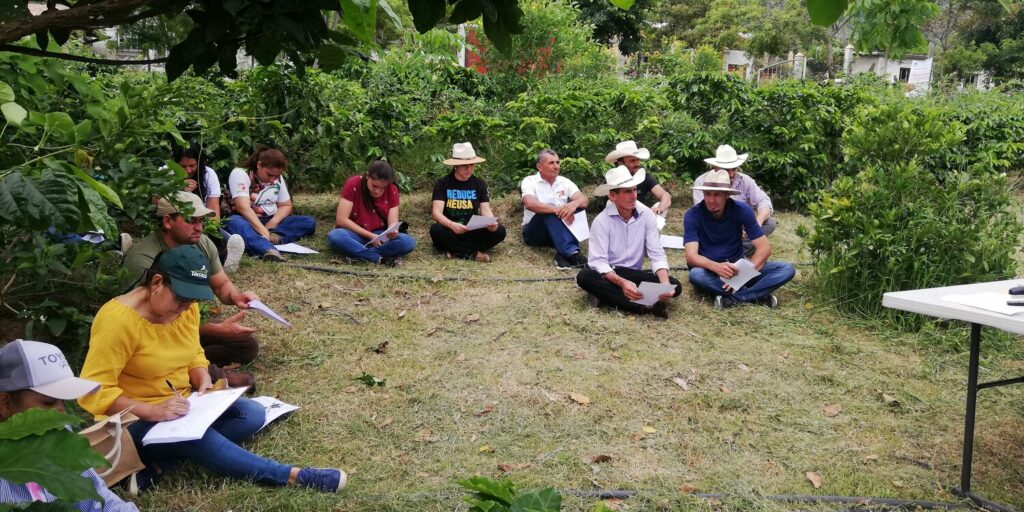
IN YOUR OPINION, HOW IMPORTANT IS IT FOR COFFEE FARMERS TO BE INVOLVED IN ONGOING RESEARCH IN COFFEE GROWTH AND PRODUCTION?
We believe it is fundamental. Researches involving only one side of the value chain are destined to be blind as researchers can only understand reality based on their own knowledge and experience. Participatory approach should be at the base of the research, not only to be able to hear and understand other standpoint, but also to acknowledge that coffee farmers are key stakeholders with valuable experience, wisdom and knowledge.
Only they know what’s happening in the farm, what are their needs, what socioeconomic, cultural and political barriers are facing, while at the same time they can share traditional practices as well as effective learnings. Furthermore, participation increases the level of appropriation, therefore reaching far more positive impact.
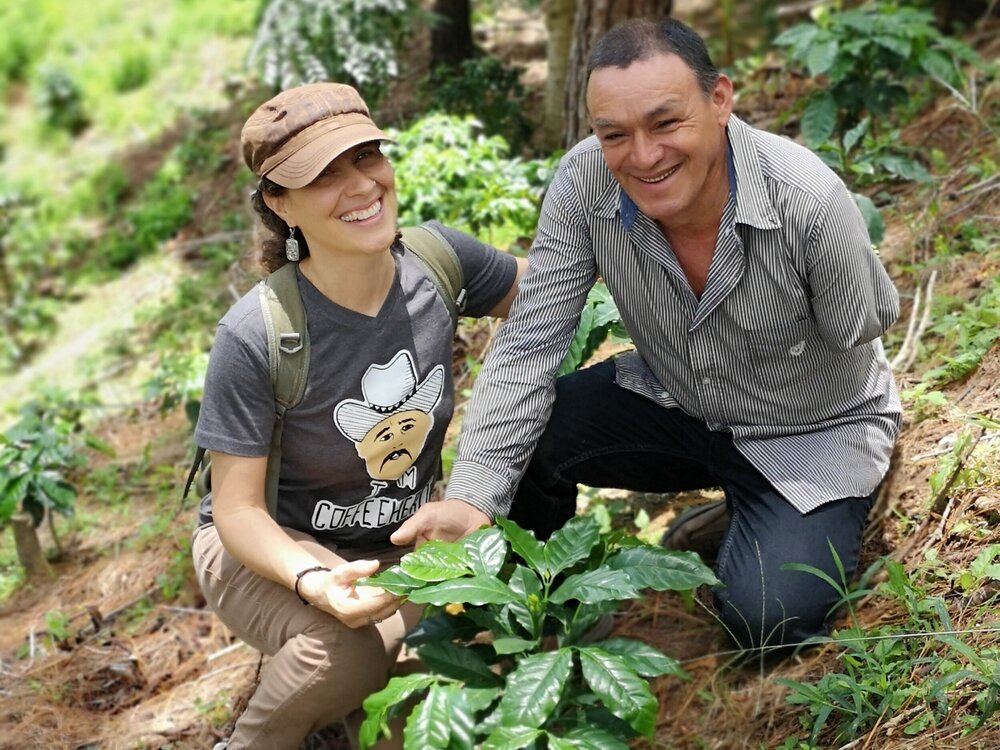
WHAT ARE THE MAIN CHALLENGES HONDURAN COFFEE FARMERS MAY FACE IN THE COMING YEARS? WHAT CAN BE DONE TO COMBAT THESE CHALLENGES?
There are two global challenges that farmers around the world are facing: low international price and climate change. Farmers in Honduras are making plenty of efforts to face both, combining sustainable cultivation practices and diversification while at the same time working to improve the quality of their products. However, as resilient and innovative as Honduran farmers can be, these threats can only be overcome if the Global North makes structural changes. The power balance is tilted in favor of consuming countries, therefore we must apply the principle of Common but Differentiated Responsibilities and Respective Capabilities.
At a national level, the country lacks proper policies to improve the conditions of those living in rural areas. Difficulties range from poor vial infrastructures to deficient health and education services and facilities. Structural violence is also on a rise, pushing thousands of people to illegally emigrate. Now farmers are also facing scarcity of workforce and are at risk of losing the harvest. Hurricanes ETA and IOTA last year further deteriorate these conditions.
Whilst farmers must keep investing in their farms as well in improving their knowledge and capacities, buyers need to provide better prices and long-lasting relations. Furthermore, advocacy at national and international level is needed to change power relations, foment better public policies, and end exploitation. Market relationships as well as development programs and politics need to be designed with an intersectional approach and decolonialized lens.
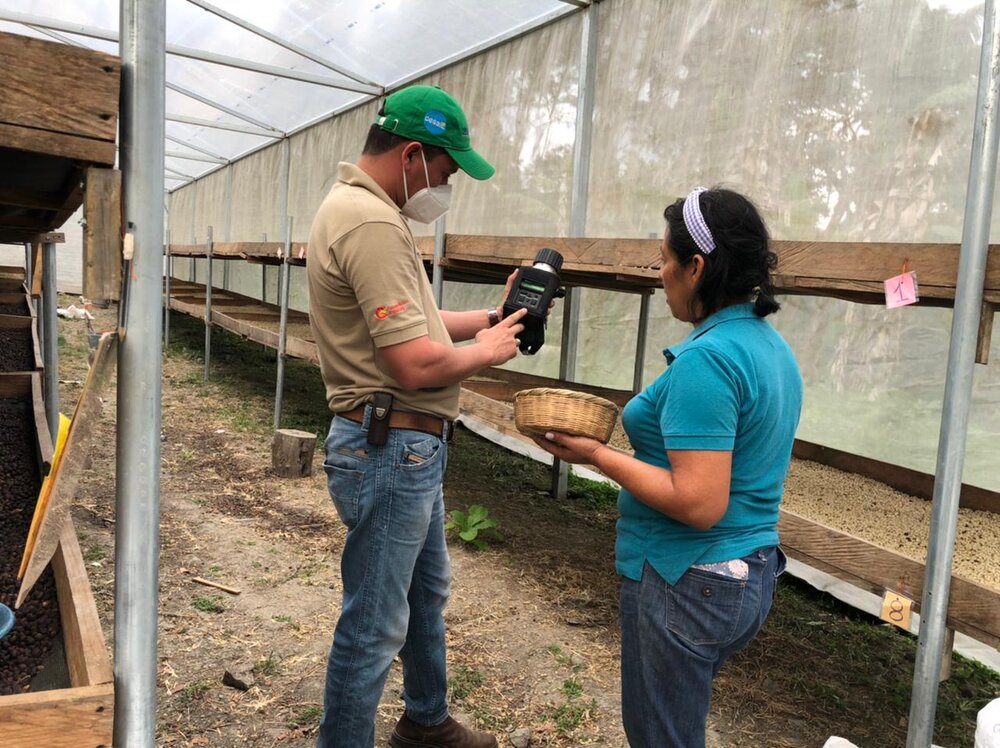
ARE THERE GAPS IN EXISTING LITERATURE AND RESEARCH ABOUT COFFEE PRODUCTION AND CULTIVATION? IF SO, WHAT ARE THEY?
As I said before, there is very little research that involves farmers. So, I would promote more participatory research based on what producers demand (now, buyers are fomenting most of the research).
But maybe it is even more important to make research accessible. Most of the literature is in English, and only a minority of farmers can understand it. While some organizations have made their research available for free, many books and articles are still too expensive for poor coffee farmers. On top of that, thousands of producers around the world have little education; therefore, we must find a more friendly way of making literature about coffee production and cultivation understandable and useful for the coffee farmers.
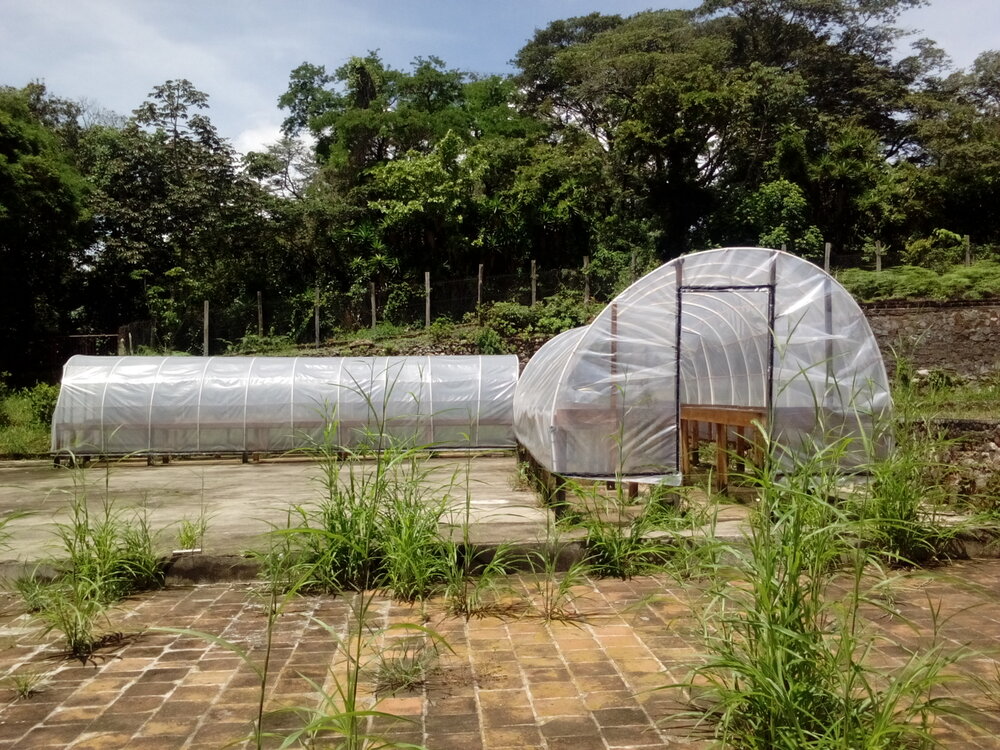
IN YOUR VIEW, HOW CAN COLLABORATION BETWEEN COFFEE ROASTERS AND FARMERS LEAD TO IMPROVEMENTS IN PRODUCTION, QUALITY, AND RESEARCH?
Building long lasting relations between roasters and farmers is for sure one key step to ensure improvements. Developing and sharing participatory research is another step. Dialogue must be at the center.
However, we must remember that the history of coffee is rooted in slavery and colonialism. Nowadays, relations are still too often based on learned hierarchies. Therefore, an effort must be made to collaborate as equal, once again applying the principle of common but differentiated responsibilities and respective capabilities. New ways of being accomplices and collaborators must be found, and collective advocacy actions need to be undertaken.
Credit: Fundación ETEA
